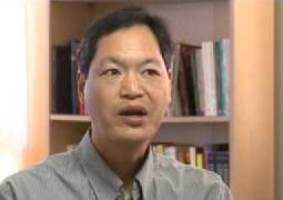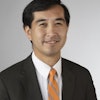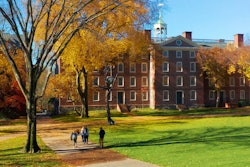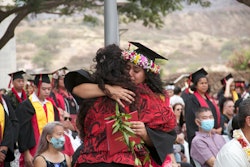 Dr. Russell Jeung is a professor of Asian-American studies at San Francisco State University.
Dr. Russell Jeung is a professor of Asian-American studies at San Francisco State University.
Nationally, Burmese-Americans have an abysmal 39 percent high school dropout rate—almost twice the rate of non-Asians in this country—so, not surprisingly, many of them live below the poverty line. Burmese are among the most numerous refugee groups to turn to the U.S. in recent years, according to the Department of Homeland Security, having fled political, religious, and economic persecution since 2004.
Furthermore, school attendance wasn’t compulsory in the refugee camps in Thailand, where thousands languished for years. Lessons at the camps often consisted of routine memorization rather than critical thinking analysis. Consequently, newcomer Burmese families in the U.S. have a tough time keeping their kids engaged with school, where they struggle with English and basic subjects.
At SFSU, today marks the fourth year that Jeung, a professor of Asian-American studies, has arranged for his students to host juniors from Oakland International High School, to familiarize them with college life and encourage them to apply for admission. Oakland International specializes in enrolling immigrants, particularly refugees whose families have little or no formal schooling.
Each year, the visiting high school group has represented myriad countries around the globe, Jeung says, and this year is no exception. The number of visitors has varied from one year to the next, although Jeung expects about 70 this time, and it has numbered 100 sometimes. The number of high schoolers with ancestral roots in Burma, also called Myanmar, has been as high as 30.
The day-long SFSU tours consist of a college student being paired with a high school junior for one-on-one conversations, Jeung says. The younger students shadow the older ones around SFSU to their classes and visit offices such as admissions and financial aid.
“Just walking around campus gives them a better idea of what college is like,” Jeung says.
His students, who are typically drawn from his “Contemporary Asian-Americans” and “Asian-Americans and Public Policy” classes, tend to gain as much from the visits as the Oakland High students do. The day’s schedule allows time for the public policy students, for instance, to interview the Oakland juniors and ask what kind of policies might make it easier for them to attain their educational goals.
“They also realize how difficult it can be to learn English,” Jeung says of the college students. “For those who have immigrant parents, they gain new appreciation of what their parents went through.”
The uphill learning of English is a constant that Jeung has observed in his studies and in working with and advocating for Burmese-Americans.
For the past two years, Jeung and his pediatrician wife have held after-school tutoring sessions for Burmese-American youths once a week at their home. The couple, along with volunteers from their church and nearby communities, helps the students with an array of academic subjects, but the common denominator is English.
“Whether it’s chemistry homework or history term papers, they’re always trying to improve on their English skills,” Jeung says of the students. “Writing is challenging, such as English compositions.”
The state of California requires that students pass an English exit exam prior to graduating high school. Some of the Burmese-American students have taken the exam repeatedly, and Jeung recalls meeting a student who tried 20 times before she was successful.
Jeung and his wife have also been foster parents to two biological sisters from Burma. One daughter is now enrolled at the University of California, Santa Cruz; the other at Diablo Valley College. Before the couple came into the sisters’ lives, one of the girls had grown so frustrated over failing the English exit exam that she dropped out of Oakland International High.
“You can imagine that if you believe that a job awaits you upon high school graduation, then it’s hard to stay motivated about school if you’re struggling with graduation requirements,” Jeung says. The girl eventually re-enrolled, passed the exit exam and graduated.
Most of the Burmese-Americans at the weekly tutoring sessions at Jeung’s home are Karen or Karenni, both of which are ethnic minorities. This does not surprise him.
In a 2011 report co-authored by Jeung, his wife and others, only 5 percent of the Karenni adults living in the San Francisco-Oakland area indicated they spoke English well. Meanwhile, more than half of the survey respondents who were Karenni had never had formal education overseas.
The surveys were conducted to determine the most pressing needs for this new population of Americans. About 500 refugees from Burma had resettled in the area, especially east Oakland, since 2007.
The 2011 report findings also included the fact that more than 63 percent of refugees surveyed were jobless and almost the same proportion lived under the federal threshold for extreme poverty.
Back at San Francisco State, the students who have hosted Oakland International High juniors in previous years have stayed in touch through Facebook after the tours. Some of the Burmese-American students have since enrolled in community college, Jeung says, emphasizing that it marks a start to reverse the poverty that so many of them have known since resettling here.





















